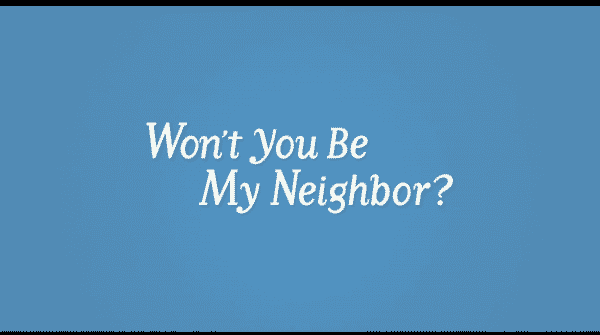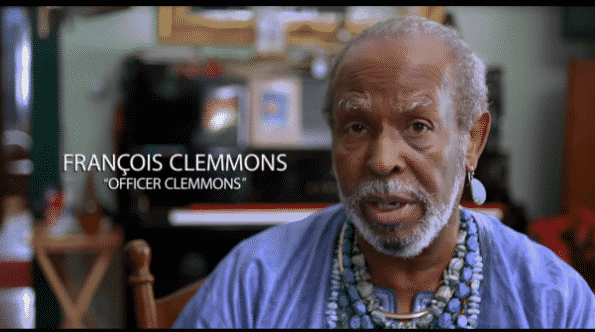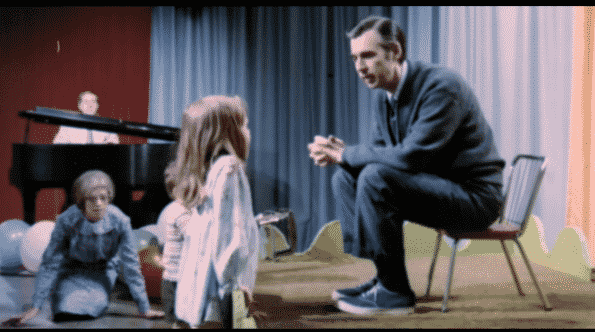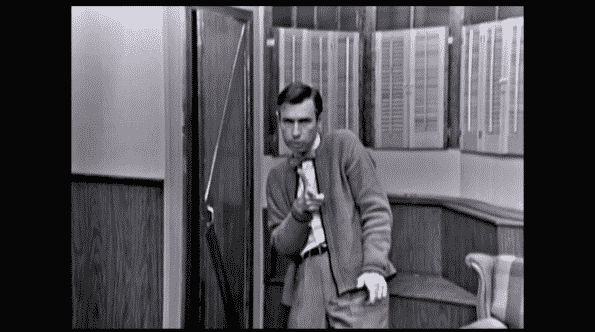Won’t You Be My Neighbor? – Recap/ Review (with Spoilers)
Whether you truly appreciated him as a kid or not, Won’t You Be My Neighbor reminds you of how much of an impact one person can have with understanding and kindness. Director(s) Morgan Neville Date Released 6/8/2018 Genre(s) Documentary Good If You Like Documentaries on childhood figures. Documentaries focused on the person’s work more than…

Spoiler Alert: This summary and review contains spoilers.
Additionally, some images and text may include affiliate links, meaning we may earn a commission or receive products if you make a purchase.
Whether you truly appreciated him as a kid or not, Won’t You Be My Neighbor reminds you of how much of an impact one person can have with understanding and kindness.
| Director(s) | Morgan Neville | |
| Date Released | 6/8/2018 | |
| Genre(s) | Documentary | |
| Good If You Like | Documentaries on childhood figures.
Documentaries focused on the person’s work more than their personal life. Documentaries which don’t include scandals. |
|
| Noted Actors or People | ||
| Himself (Archival Footage) | Fred Rogers | |
| Herself (Archival Footage) | Margaret McFarland | |
| Himself (Archival Footage) | John O. Pastore | |
| Himself | François Scarborough Clemmons | |
Summary
From his show Children’s Corner in 1967 at WQED to one of his last appearances, which followed the 9/11 terrorist attacks, one thing is made clear: Mr. Rogers wanted to be an alternative. One which for kids, even adults when he dabbled in that, didn’t use bells and whistles to entertain and connect with people. Instead, it was an almost southern drawl which used deliberate wording and tempo. A means of speaking which, throughout a lot of archival footage, made it clear that listening is as important as talking, and giving others room to finish their thought. A child or not.
But, that’s speaking of Mr. Rogers as a media personality. What many who grew up with him, or know of him probably want to know is: Was he really like that? Especially with rumors that he was in the military, had tattoos and basically, Mr. Rogers was more a character than anything else. However, that’s far from true. As elaborated on by his sons, wife, and people who worked with him, Fred Rogers was who he was. A rich boy, with a religious education, who was heavily invested in childhood education and mental health.
Someone who, for most of his life, mirrored his character Daniel the tiger. Someone soft-spoken, a bit insecure, and not really good at expressing feelings of anger and things of that nature. Not to imply anything negative, like he was a distant father or a husband who wasn’t communicative. More so, there are issues from his childhood, which doesn’t get dug into deep, that were unresolved.
However, as time went on and Mr. Rogers more socially conservative side adapted and grew, he became more like King Friday. A bit gruff, not necessarily liking how things were changing, especially when it came to media geared towards kids, and a bit worn down. For after being on television for over 30 years, while many kids would note the effect he had on them, there was this consistent need to question when or if someone would pick up the baton.
And they didn’t.
Other Noteworthy Facts & Moments
- Margaret McFarland is credited as one of Fred Roger’s main influences when it came to child psychology and education.
- Fred Rogers was a Republican due to his faith. As for what sort of policies he was for and against, that isn’t gone into. However, while not accepting of François Scarborough Clemmons being gay at first, if just for the sake of wanting to keep sponsors, he noted later on he liked him just the way he was. Also, Fred’s wife, Joanne, notes they had a lot of gay friends.
- Rogers was very more into displaying the numbers “143” which represented I (1), Love (4), You (3).
- When speaking with his children, especially about something negative, he would use his Lady Elaine voice, which was based off a family member.
- Rogers wasn’t much for seeing doctors.
Question(s) Left Unanswered
- Rogers’ childhood isn’t heavily gotten into. We do know he was a chubby kid and was bullied, but as for talking about his parents and things of that nature? There is a lack of details.
- In terms of his politics it is noted he was a Republican for religious reasons, but also was racially accepting and, with time, accepting of people of various sexualities. So, in terms of other topics, like abortion and things like that, was that why he was Republican?
Collected Quote(s) or .Gifs
“The outside world of children’s lives have changed but not the inside.”
Highlights
It Makes It Perfectly Clear, Whether You Were A Fan Or Not, The Influence Fred Rogers Had
To be honest, as a kid I thought Mr. Rogers Neighborhood was boring. Especially when the cable was cut off and I couldn’t watch Gullah Gullah Island
or whatever was on Nick Jr. at the time. However, as an adult, I have learned to appreciate his show. For as noted in the movie, there aren’t a lot of shows or children’s media, which aren’t just trying to cultivate the next consumer market. But with Mr. Rogers, while he doesn’t treat the kids as adults, he does present to them an adult capable of listening to their feelings and helping them navigate them. As opposed to flashy productions made to take their mind off things.
Something that, as a person who one day wants to have kids, seems more valuable than having them watch cartoons that are violent, and filled with innuendo. Though Mr. Rogers value goes beyond providing clean entertainment. He was a bit radical in his own way. He had episodes on divorce, racism, assassinations, death, and even on feeling insecure.
Which, as you watch, will probably be what turns that faucet to begin the waterworks. For while not a fan of the show, as an adult, you learn to appreciate the idea of someone telling you they like you as you are. The meaning of being someone’s neighbor lost because we were raised to be fearful of strangers, and just knowing someone who is pleasant on camera is the same way off camera. Unlike people like Bill Cosby.
Though we can’t forget him getting $20 million for PBS to launch from Senator Pastore who was carrying out Richard Nixon’s budget cut agenda. Really speaking to how Mr. Rogers, whether you was a kid or adult, knew how to speak to you in a way most people just don’t put in the effort to do. Hence why I can nearly guarantee, after all that is revealed or talked about, you will not only be crying but tempted, whenever you get or kid or if you have a young one, to introduce them to Mr. Rogers and have them inundated.
On The Fence
The Movie Keeps It More About Fred Rogers’ Professional Life & Limits The Personal
As noted, Fred’s childhood is part of the narrative, like how Daniel the puppet he had a symbiotic relationship with for it represented his childhood. Also, it is noted he was chubby, bullied, and grew up rich. However, we don’t learn much about his parents really, how they raised him, and about who he was before going into television.
The same goes for him as an adult. While he is talked about as a sensitive soul, one who was a bit insecure at times about his contribution to the media zeitgeist, there is also a noted frustration. And maybe I’m just too used to seeing documentaries having subjects with a dark side or whose dark stuff is dealt with. I’ll cop to that. But then, even when they talk about how he became a bit upset about how nothing really changed after hundreds of episodes and he became more and more like King Friday, they don’t dig too deep. Even in terms of how his kids dealt with what one calls “The second coming of Jesus,” that isn’t gone into. Never mind being married to a man like Fred.
Making it where, similar to the documentaries we have seen about and from Beyoncé and Misty Copeland, it seems the idea here is for people to get to know the subject selectively. That is, show they were definitely human, with flaws and things of that nature. However, never present anything which can’t be spun or that could damage the brand.
Overall: Positive (Worth Seeing)
It’s honestly rare for a documentary to draw my attention. Probably because, like Mr. Rogers tried to prevent for many of us, I’m addicted to drama, vulgarity and slapstick comedy. So, documentaries just come off as a bore. However, ones about popular figures, like Mr. Rogers, always peek my interest for, especially if the subject is dead, and if there isn’t some brand trying to be preserved, you get the total truth.
Now, in the case of Won’t You Be My Neighbor? you can see a bit of brand protection going on. Such as Mr. Rogers being willing to, in his own way, advocate for racial equality and talk about hard subjects – but likely keep a conservative viewpoint on homosexuality. If not in social spaces be accepting but at the polls be anything but. Yet, while that can be gathered, there isn’t any real controversy here. What we get here is a lot of clarification and an easy to follow timeline.
Hence the positive label. What this film represents is not just its subject but Mr. Rogers’ beliefs. That not all entertainment needs vulgarity, violence, and a big budget to have worth and be something to see. The media is a tool to educate and alongside educating us on who Mr. Rogers was, it also reminds us of his principals. The kind which you realize, no matter your age, aren’t really pushed by children’s shows and decreasingly seen in real life. Making you realize this man, who meant a lot to people, isn’t the type where there is any need to question why he was singled out for a documentary. More so you wonder why one wasn’t produced sooner?
Follow Wherever I Look on Twitter, Like us on Facebook and Subscribe to the YouTube Channel.
Check Out Other Movie Reviews
Such As These Similar Movies
- 20 Feet From Stardom
- I Am Big Bird: The Carroll Spinney Story
- I Am Chris Farley
- Floyd Norman: An Animated Life
- Gaga: Five Foot Two
- He Named Me Malala
- Joshua: Teenager vs. Superpower
- The Kingdom of Dreams and Madness
Images used for editorial and commentary purposes. All rights remain with their respective copyright holders.






